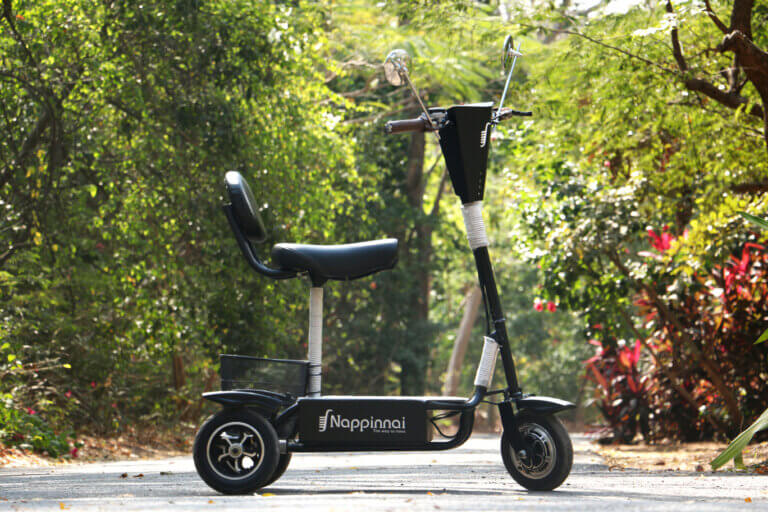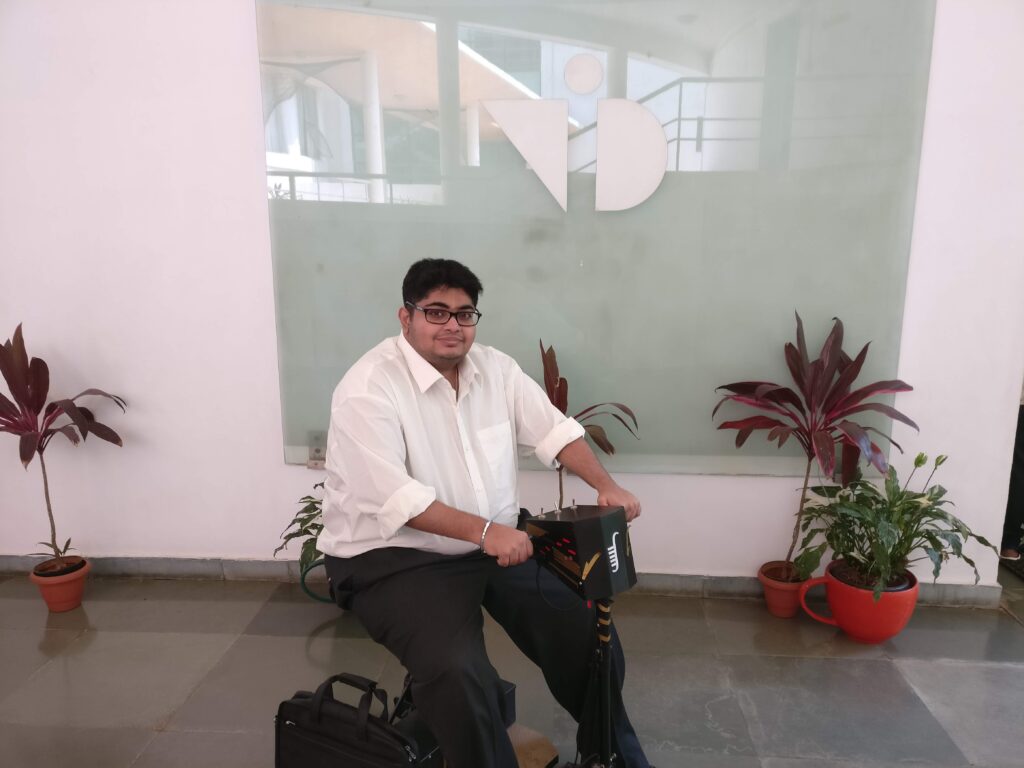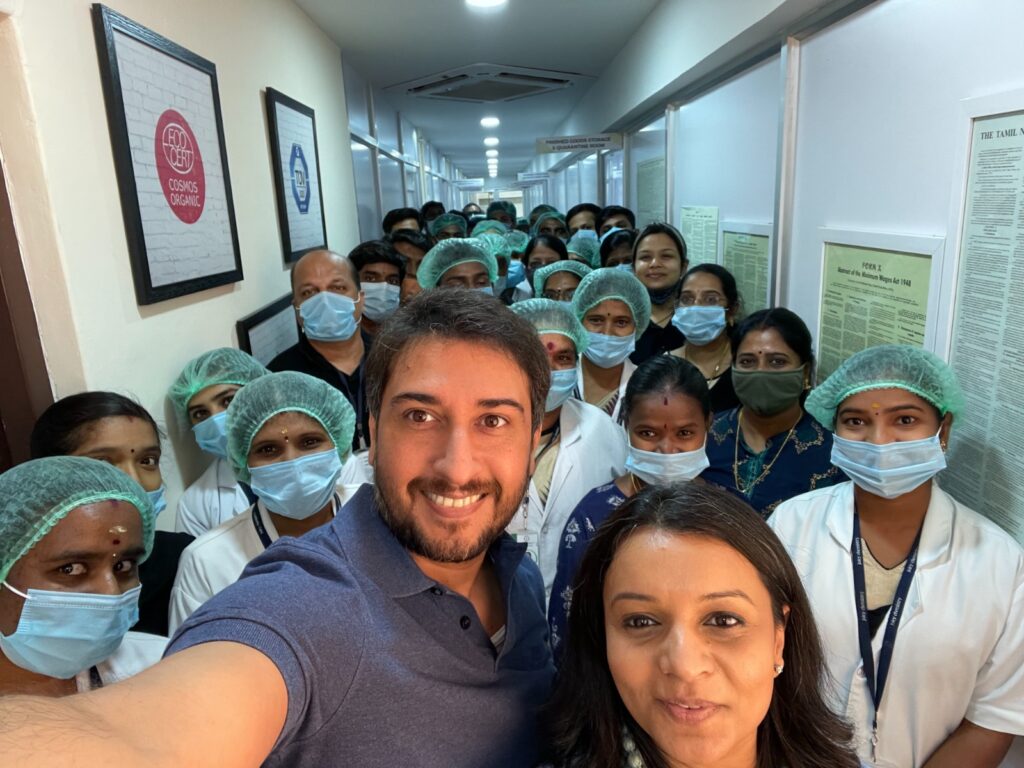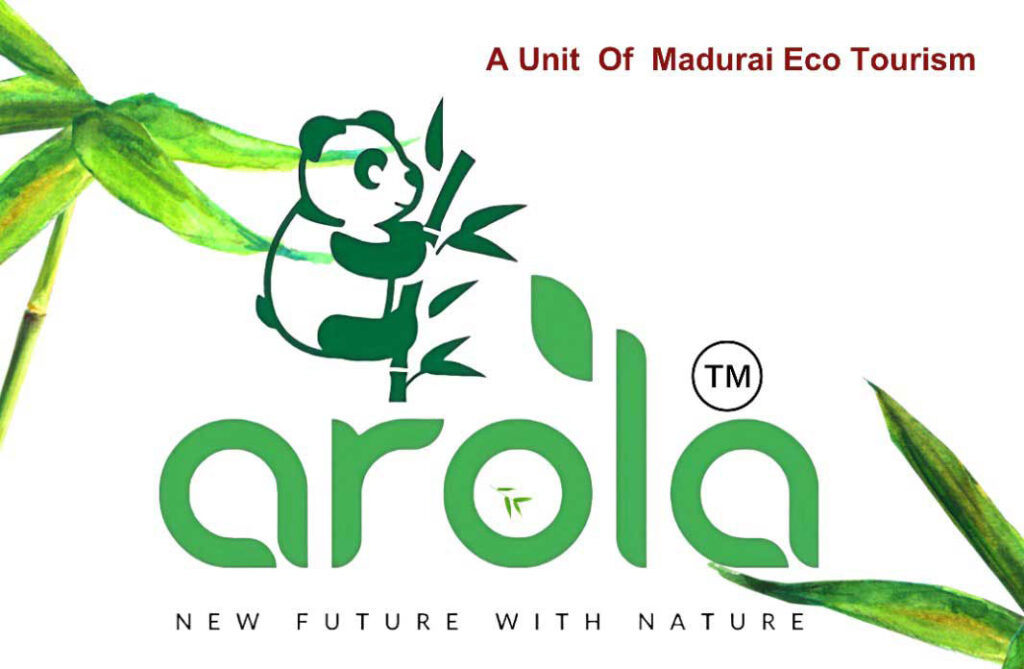“What do you want to do when you grow up, Naidhro?” asks another adult who had come to visit. I want to build a car that can drive on land, swim through a waterbody and even fly!” the little boy says with a twinkle in his eye. While all the other kids wanted to become doctors and astronauts this was his customary response.
Naidhroven thought about the concept of movement a lot—something that most of us take for granted. “Every step I take has to be precalculated,” he says. The young entrepreneur was diagnosed with muscular dystrophy as a child.
The school was supportive. He was always assigned to classrooms on the ground floor. However, high school was when the condition would begin to dictate his career path. “I wanted to pursue the science stream,” he says as he remembers his late father who inspired him to become an engineer. The science stream would involve moving from the classroom to different labs. As a result, he was advised to pick the commerce stream instead.
By the time he was in college, he had a routine in place. Like clockwork, every morning between six and ten he would go for exercise and treatment sessions. He had enrolled in the evening program at college so that he could fit in his piano classes and a course in animation at the Maya Academy.
Naidhroven’s looming degeneration did not affect the size of his dreams. After college, he took a break and pursued a four-month course in embedded engineering. His father’s business built ECG machines. Naidhroven decided he would work there and gain practical experience. The job did not just boost his confidence but also made him realise his passion for coding.
By 2011, he wrote the TANCET and applied for an MBA at Anna University. His final year project was the beginning of his journey with Enterprise Resource Planning (ERP) systems. “My friend and I would take up freelance projects,” he recollects, “However, coding was something I learnt as a hobby. I could not cope with it as a serious career.”
Around the time of his graduation in 2013, Naidhroven suffered a severe ankle injury from a fall. The injury shattered his confidence. “Any kind of fall would mean extra complications for people with muscular dystrophy. If I sit for long hours I would have to go through a series of stretches before moving,” he explains, describing the psychological stress that he underwent.
About five years ago, his father had a similar leg injury from a fall. He was looking for alternatives for wheelchairs when he decided to build himself a scooter. The scooter was compact, had a height automation jockey and allowed one to get on and off in any direction. Unlike the wheelchair, which requires assistance, the scooter was empowering.
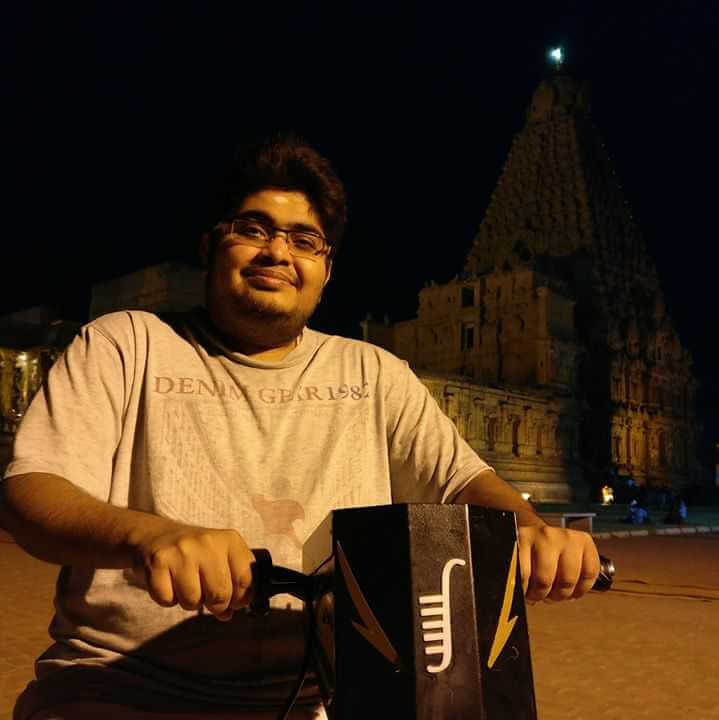
“It almost felt like a toy! I would just have to flick a switch and I could roam about the house freely,” he smiles as he recalls being liberated of his worries once the scooter was passed on to him. The burden was lifted. He could once again focus on his career.
He joined a community that trained and helped people with special needs to get a job at an IT company through NASSCOM. A person from the organisation took one look at Naidhroven’s resume and responded, “You seem to be a jack of all trades. Why don’t you try to build a business?”
Although working a corporate job with the “who’s who” in tech was what he had always dreamt of, the idea of building a business suddenly seemed enticing.
“Animation, music and coding,” he lists with three fingers sticking out, “I don’t identify as a creative as much,” he laughs as he begins to describe his first venture.
He built on the concept of ERP systems that he was familiar with. The software would grow from idea to organisation along with the business. The concept took him to the 2015 Collision Conference in the US, where he would network with several mentors and potential investors.
He got in touch with each of them only to hear the same words echo—build traction and come back. He hired a couple of interns to build the business but his relentless effort bore no fruit.
Just as he was spiralling into another existential crisis he suddenly noticed the scooter beside him. His childhood dream of building a multi-terrain vehicle may not have to just be a dream after all.
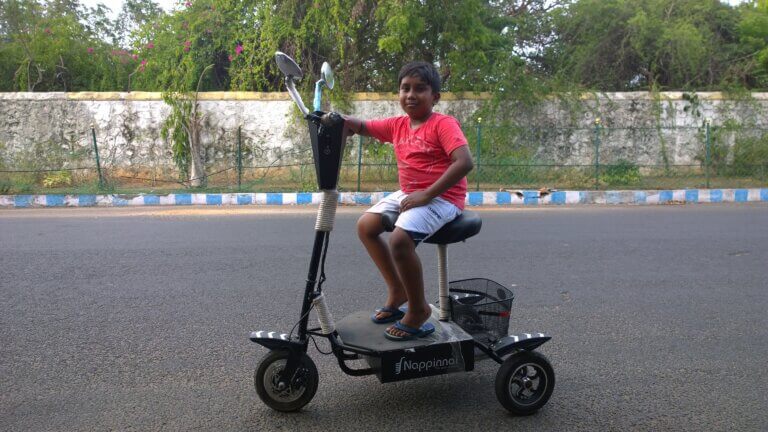
He immediately started applying for loans. “There was a 25% subsidy under the Prime Minister’s Empowerment of Persons with Disabilities program,” he explains. His loan application was met with a series of paperwork and a presentation to the district collector. A part of the loan was sanctioned in one and a half years.
By February 2016, Nappinnai was founded with a multidisciplinary team of six. The company would not just rebuild the scooter but also use it as an entry into the electric vehicle industry. Within six months seven prototypes were ready. “We had several interns coming in from reputed institutions around then,” he states as he describes how the team underwent a huge expansion to accommodate forty by the end of the year.
A new series of challenges followed the growth. A Hyderabad-based company engaged with Nappinnai as a potential investor only to copy the design and start its own product line. “Most of the team was banking on this deal,” he divulges, “Since most of them were fresh out of college or interns, they had to quit as they were pressured to support their families.”
The venture stayed afloat until the following year. However, the passing of Naidhroven’s father was a difficult time. The young entrepreneur lost his mentor and pillar of support.
Naidhroven had a new set of responsibilities. He would have to take over his father’s pending business orders before shutting down the ECG company. Though it initially seemed like he could not actively spend time on Nappinnai, the relationships he built with the manufacturers associated with his father’s company proved to be an asset.
It was around mid-2019 when Naidhroven was relieved of his additional responsibilities and could reconfigure his focus on growing his company. He returned to the playfield resolute as ever. His childhood dream once again resonated in his head.
Nappinnai designed electric bicycles and mopeds for Swiggy in Hyderabad and Mumbai. The forty electric vehicles distributed to these two locations proved to be a hit during the busy months of December. The sudden onset of the pandemic in February, however, brought the project to a screeching halt.
Around the same time, electric vehicle companies like Ather and Ultraviolette were just becoming popular. “We wanted to remove the stigma around people with special needs through this product,” explains the entrepreneur, “Besides, retrofitting additional parts to existing vehicles requires approval from the Automotive Research Association of India (ARAI).”
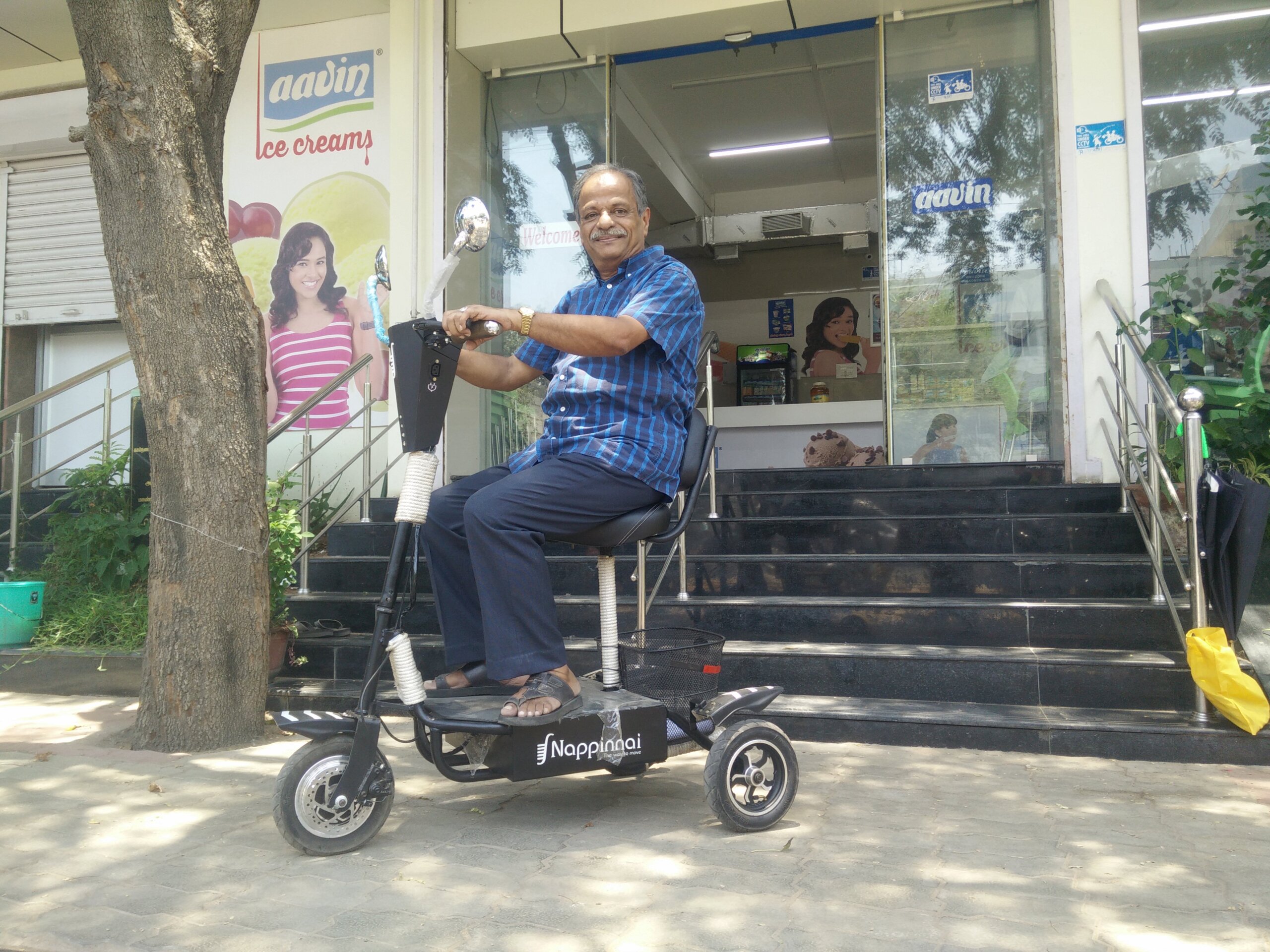
A series of tests showed that the scooter (now branded as the Scotra CML) would be useful to empower women in tier-2 and tier-3 cities. This is because they are dependent on their husbands for their daily commute as they don’t own a scooter for themselves or they do not know how to ride one. It also helped the elderly, the children and people with back pain (especially from riding long distances frequently) to move around as they pleased.
The universal design concept of Nappinnai’s Scotra CML was caught under the NID Incubation Center’s radar. This encounter introduced him to two co-founders and mentors—the former was a part of the team that built the TATA Nano, while the latter is a member of TiE Chennai and Chennai Angels. Industry veteran, R Narayanan, joined the advisory board.
“We then bought an auto and began retrofitting it with electric parts,” he traces back. Nappinnai has a product catalogue of electric vehicles from two-wheelers like bicycles and mopeds to three-wheelers like the auto and the Scotra CML.
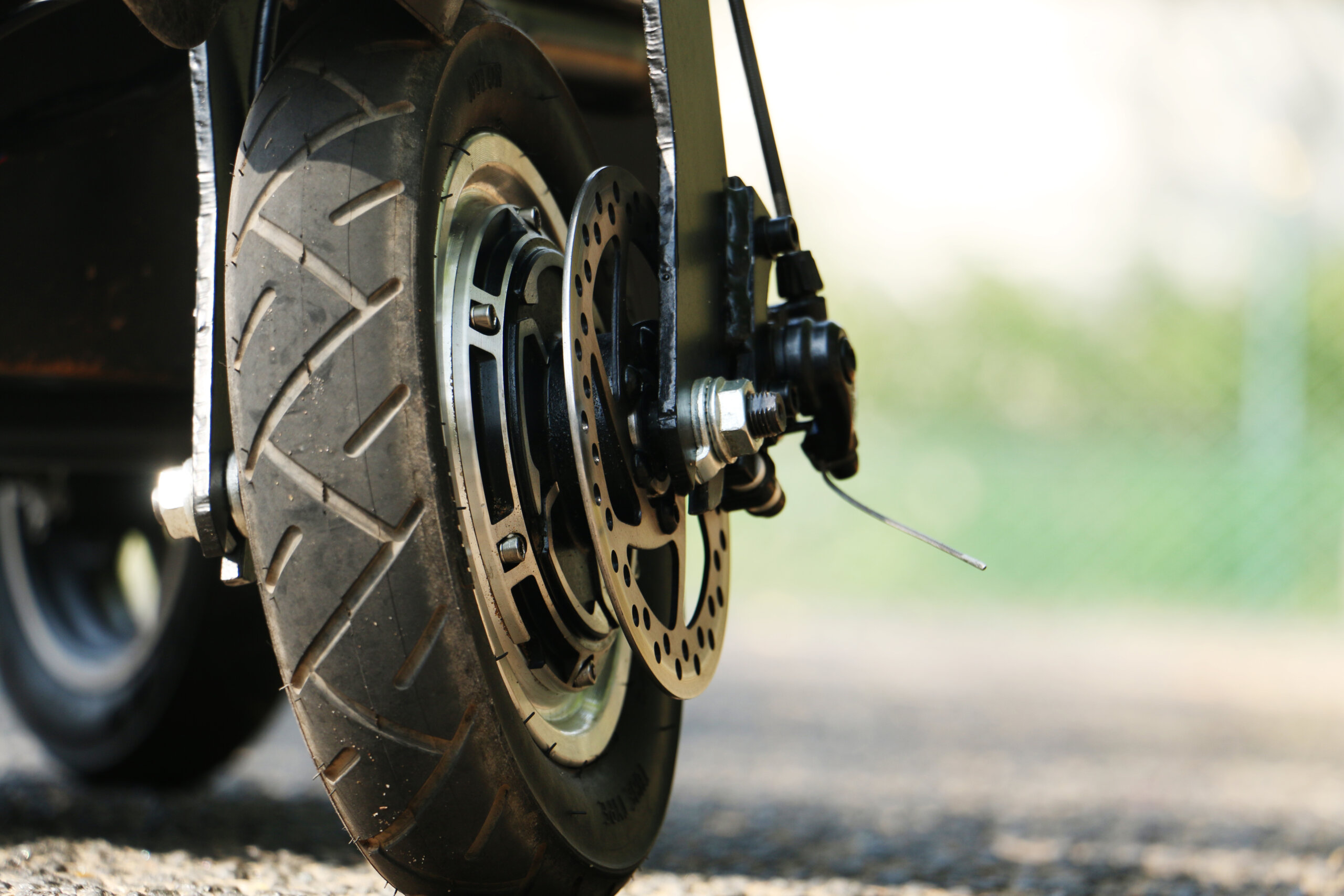
The latest addition to the catalogue is Urmi, an electric bicycle converter kit. It can convert an ordinary bicycle into an e-bicycle in ten minutes. Naidhroven immediately opens the laptop in front of him to display statistics. It isn’t hard to believe that 450 million people in India use cycles. “Four out of five people in the village use the low-cost green cycles for transport,” he states. The conversion kit is meant to be as affordable as Rs.6000 with an EMI option of about Rs.300 a month. The kit will be IoT-enabled to allow banks to track payments.
“Research by the European Union and the Research Institute of India demonstrate that if the distance to your work increases, your income increases,” he says, emphasising the value of movement. He believes that if he can empower someone to be able to move 25 km instead of 12 km he could probably help them increase their salary by at least thirty percent. “That is the power of movement,” he concludes as he pats the Scotra CML that is parked next to his chair.
